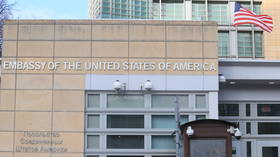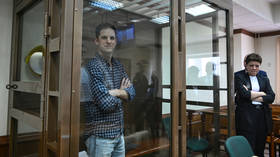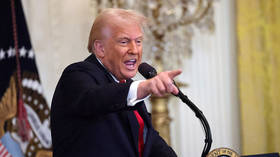Russian agents ‘left feces’ in US official’s suitcase – WSJ

A secretive unit of Russia’s Federal Security Service (FSB) tasked with covertly following high-profile Americans in the country often left “calling cards” in the homes of their targets, including feces in their toilets and a suitcase, the Wall Street Journal reported on Friday, citing sources.
According to senior Western officials, Russian journalists, and analysts who fled the country, the FSB’s Department for Counterintelligence Operations (DKRO), which the paper says is responsible for the arrest of WSJ journalist Evan Gershkovich and several other US citizens, was responsible “for a string of strange incidents.”
The Russian operatives are believed to have something to do with the “mysterious death” of a dog belonging to an unnamed US diplomat, trailing an ambassador’s children, and flatting tires on embassy vehicles.
The agents working for the secretive unit also allegedly often want their targets to know they are being followed. To achieve that goal, in at least one instance they purportedly left a burnt cigarette on a toilet seat. They also went as far as to leave “feces in unflushed toilets at diplomats’ homes and in the suitcase of a senior official visiting from Washington,” the WSJ claimed.
According to the paper, DKRO operatives also broke into Americans’ rooms to plant bugs, tried to recruit embassy clerks, and even used young women to cajole US Marines stationed in Moscow to get them to spill secrets.
Neither the Kremlin, nor the FSB, nor US authorities have commented on the report.
WSJ reporter Evan Gershkovich still remains behind bars in Russia. The 31-year-old journalist was detained in late March near a military installation in the city of Ekaterinburg in Central Russia and charged with espionage. Both the WSJ and US authorities have denied the allegation, with US Secretary of State Antony Blinken claiming that Gershkovich was “wrongfully detained.”
Speaking on a possible prisoner swap involving Gershkovich, Kremlin Press Secretary Dmitry Peskov said that Russia maintains contacts with the US on the matter, but noted that all relevant talks should be carried out “in complete silence.”
The ongoing negotiations were confirmed by the White House, with US National Security Advisor Jake Sullivan saying that “there have been discussions, but those discussions have not produced a clear pathway to a resolution.”














